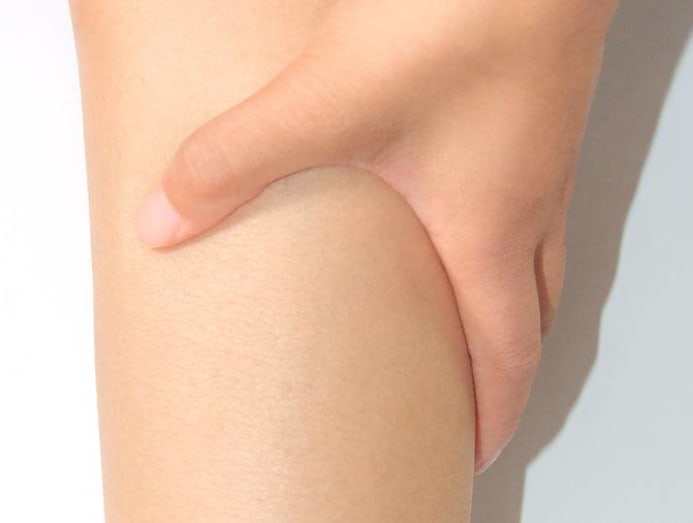Does using the sauna actually help you lose weight? And does it count as cardio?
Sweating it out in a wooden box doesn't work as a "detox" – but it might have other health benefits, like reducing the risk of heart disease and dementia.

(Photo: Pixabay)
You might book yourself a massage to destress and knead out those knots in your muscles.
But not many in Singapore would make it a point to visit the sauna as a wellness must-do, especially when the activity has a sleazy connotation in some circles.
But those who do enjoy a proper schvitz would tell you that the heat works wonders on tight muscles and stressed minds.
And as the perspiration drips off your body, a weight seems to be lifted from your shoulders, too.

As beneficial as taking the sauna is, there are also some commonly held notions that are actually inaccurate.
Take detoxifying the body and weight loss, for instance.
“Studies have shown that up to 97 per cent of sweat produced while being in a traditional sauna is water and the rest is salt with no toxins found,” said Ray Loh, senior physiologist at the Sports Medicine and Surgery Clinic at Tan Tock Seng Hospital.
As for weight loss, that’s just from the water you’ve sweated off. Loh said that infrared sauna suppliers may claim otherwise but more studies are needed to substantiate that claim.
While the heat may help alleviate the muscle soreness created during exercise, it can’t reduce the soreness experienced post-exercise or what is known as delayed onset muscles soreness (DOMS), said Suelyn Chan, principal physiotherapist from Changi General Hospital’s Rehabilitative Services.
“There is little scientific data that supports sauna use improving muscle recovery or enhancing performance either,” she said.
SWEATING IN SAUNA IS SIMILAR TO MODERATE EXERCISE
But even if using the sauna doesn't help with muscle recovery, it may go some ways into helping you improve your cardio health.
A study by the researchers from the University of Eastern Finland found that the effects are similar to moderate exercise, and could also decrease blood pressure and artery stiffness.

According to the research published in JAMA Internal Medicine, those who frequented the sauna more had lower risks of heart disease.
A 23-per-cent lower risk for fatal coronary heart disease, to be exact, if you visited the sauna twice or thrice weekly, noted the study on 2,315 Finnish men aged 42 to 60 years old.
Sweating it out four to seven times weekly was even better – it almost halved (48 per cent) their heart disease risk.
There may also be a lower risk for dementia since both heart disease and dementia share common risk factors, such as high blood pressure, said the University of Eastern Finland researchers behind the study.
READ: Naked etiquette: From onsens in Japan to jjimjilbangs in South Korea
The researchers said sweating creates a natural diuretic effect, and that could be responsible for lowering the blood pressure and decreasing the work load of the heart.
Those health benefits could also come from raising your heart rate. In fact, your ticker may be beating up to 150 times per minute in the sauna, which actually corresponds to you doing moderate intensity exercise, such as brisk walking or even household chores including vacuuming or mopping.
There’s another advantage from the heavy sweating; it releases endorphins and helps with the perception of pain, said Chan.
“The heat also increases blood flow to the muscles, which probably helps sore muscles feel better temporarily by removing the accumulated lactic acid, and increases muscle flexibility and joint stiffness.”
HOW TO REAP THE BENEFITS
It can feel like walking into an inferno when you first enter the sauna. After all, the temperature is usually set at 80 to 89 degrees Celsius with a low humidity level of 5 per cent to 20 per cent, said Loh.
“Within minutes, your body temperature, especially the skin temperature, will rise to as high as 40 degrees Celsius,” he said.
Even though studies have shown the heart rate and blood pressure rising while in the sauna, Dr Sheldon Lee, consultant with Changi General Hospitals’ Department of Cardiology, said that those levels may drop even lower than before the schvitz for those with low blood pressure.
“Should the blood pressure fall too low, it may cause the individual to feel giddy. In extreme cases, it might even trigger a fainting spell.”
READ: The real reason you and your spouse fight over the blanket and air-con remote control
Loh said that the suggested duration of sauna use per session should not be more than 10 minutes for beginners and 15 to 20 minutes for experienced sauna users.
“The longer the duration, the higher the risk of dehydration. For those who prefer longer sauna baths, do it in short bouts of 10 or 15 minutes.
"The main purpose is to relax the body and you should leave once you’re feeling dizzy or discomfort,” he said.
WHEN YOU SHOULDN’T USE THE SAUNA
Are there any dangers to using the sauna, considering how hot and humid Singapore’s weather is? Well, no, said Chan.
But if you’re working or exercising under the hot sun, make sure that you’re well hydrated by drinking one to two glasses of water before and after going in, she said. And that’s water – not alcohol.
In fact, Loh said that our climate may make it easier for us to tolerate the heat better. Furthermore, there isn’t enough evidence to show that using the sauna in hot and humid countries can lead to any health risks, he said.
But there are individuals who might want to avoid stepping in, said Dr Lee. These include pregnant women, those who are ill or have medical conditions, and unattended young children who might accidentally scald themselves with the steam or hot water.
If there are children with you, make sure they stay no longer than 10 minutes each time, advised Dr Lee. You should stay out of the sauna, too, if you have a fever, an acute infectious or inflammatory condition, or any skin conditions.
READ: Supplements and diets for heart health show limited proof of benefit
Those with cardiovascular issues such as a recent heart attack or uncontrolled hypertension should also consult their doctors first before stepping into the sauna, said Dr Lee.
“The hot and humid environment imposes a burden on their cardiovascular system,” he said.
In fact, you should not use a sauna within a week after a heart attack. During this time, “the risk of complications, such as abnormal heart rhythms, heart failure and mechanical complications, is the highest”.
“As steaming in the sauna typically raises one’s heart rate to more than 100 beats per minute, this could result in chest pain and potentially tip the patient into heart failure,” said Dr Lee.
READ: Low blood pressure can lead to heart attacks – or create a scene at the very least
What about the signs that you should immediately get out of the sauna to cool off? One red flag is when you feel nauseated and dizzy. Sweating for an extended period of time can result in dehydration; coupled with a drop in blood pressure and you could go into hypovolemic shock, said Dr Lee. This happens when your “blood pressure and blood volume become so low, your body’s tissues no longer get the oxygen they need to survive”.
Now that you know what you should do, it's just about popping into a sauna of your preference.





